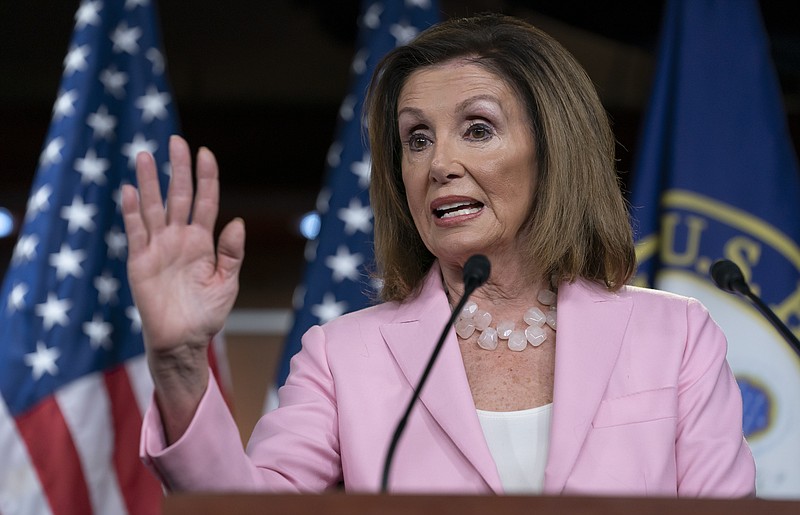WASHINGTON (AP) — Democrats controlling the House are steering clear of controversy in a short-term, government-wide spending measure that’s needed to prevent a government shutdown at the end of September.
House Speaker Nancy Pelosi has agreed to a White House request to replenish funds for bailout payments to farmers absorbing heavy losses as a result of President Donald Trump’s trade battles with China. She has also rejected suggestions from House liberals to try to use the must-pass stopgap measure to try to reverse the president’s controversial moves to raid military base construction projects to pay for the border wall,
The temporary spending bill would keep the government running through Nov. 21 and is to be released Tuesday. House and Senate votes are expected well in advance of the Sept. 30 deadline to avert a shutdown, though its release remained held up over a relatively a relatively minor but complicated set of issues.
The Senate, meanwhile, remains wrapped around the axle in its efforts to advance the 12 annual spending bills that would fill in the blanks of this summer’s bipartisan budget and debt deal.
Majority Leader Mitch McConnell, R-Ky., has set up a procedural vote for today on a huge measure to fund the Pentagon, foreign aid, and domestic agencies like the energy and education departments, but Democrats appear likely to filibuster the measure to protest what they say is a raid on health and education programs to pay for more border wall projects. Next steps are unclear at best, and fears are growing that most of the government, including the Defense Department, will have to run on autopilot at current funding levels.
“Of course Democrats oppose taking funds from Congress for our military to use on the president’s border wall. Everyone knows that,” Schumer said Tuesday. “McConnell has been accusing Democrats of threatening to block military funding because we don’t want to pass a bill that steals money from the military.”
The maneuvering highlights the precarious nature of the summer’s bipartisan budget pact, which combined a two-year increase in the national debt with a set of new spending “caps” to prevent the return of automatic, across-the-board spending cuts to both the Pentagon and domestic federal agencies.
In that agreement, both sides promised to steer clear of controversial provisions that, if included in the bills, would be so politically nettlesome that they would derail the entire process. But Sen. Patty Murray, D-Wash., upset education and health programs within her jurisdiction have been shortchanged and angry over a new Trump administration rule banning family planning providers that accept federal funds from counseling women about their abortion options, threatened an amendment to reverse the administration’s abortion “gag rule.”
McConnell said Murray’s amendment — it would have likely passed the Appropriations Committee over opposition from GOP conservatives and the president — would violate the agreement to avoid politically toxic “poison pills,” and the typically bipartisan appropriations process in the Senate ran aground.
A top Senate Democrat, Dick Durbin, of Illinois, said Democrats want allocations they consider to be fairer to social programs and agreements on plotting floor consideration of legislation so they are not at a disadvantage in fighting for their priorities. “We get those things and the poison pills start drifting away,” Durbin said.
The Senate Appropriations Committee on Tuesday did approve three bipartisan bills funding transportation and housing, the IRS and the Treasury Department, and agriculture programs.
The stopgap measure to fund the government is aimed at buying time for action and negotiations on $1.4 trillion in annual appropriations bills. Some items can’t wait and will be included, like accelerated funding for the 2020 census and $20 million to combat Ebola in Africa.

